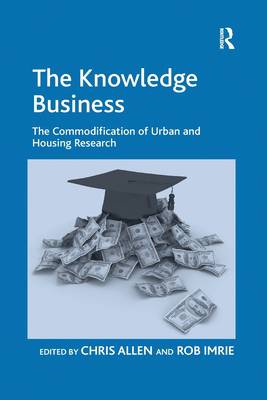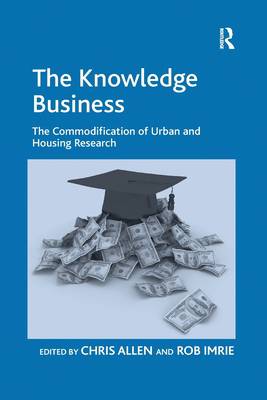
- Afhalen na 1 uur in een winkel met voorraad
- Gratis thuislevering in België vanaf € 30
- Ruim aanbod met 7 miljoen producten
- Afhalen na 1 uur in een winkel met voorraad
- Gratis thuislevering in België vanaf € 30
- Ruim aanbod met 7 miljoen producten
Zoeken
The Knowledge Business
The Commodification of Urban and Housing Research
Rob Imrie
Paperback | Engels
€ 83,95
+ 167 punten
Uitvoering
Omschrijving
This book provides a critique of the knowledge business, and describes and evaluates its different manifestations in, and impacts on, the university sector. Its focus is the social sciences and, in particular, housing and urban studies. Drawing on a wide range of experiences, both in the UK and elsewhere, it illustrates the changing management of the academy, and the development, by university managers, of instruments or techniques of control to ensure that academics are disciplined in ways that are commensurate with achieving commercial goals. The individual chapters highlight the different ways in which the academy is being put to work for commercial gain, and they evaluate how far the public service ethos of the universities is coming apart in a context in which what is to be serviced is increasingly a private clientele defined by their 'ability to pay'. The Knowledge Business examines the contradictions and tensions associated with these processes, highlighting the implications for the academic labour process, and the future of the academy.
Alleen bij Standaard Boekhandel
+ 167 punten op je klantenkaart van Standaard Boekhandel
Beoordelingen
We publiceren alleen reviews die voldoen aan de voorwaarden voor reviews. Bekijk onze voorwaarden voor reviews.












